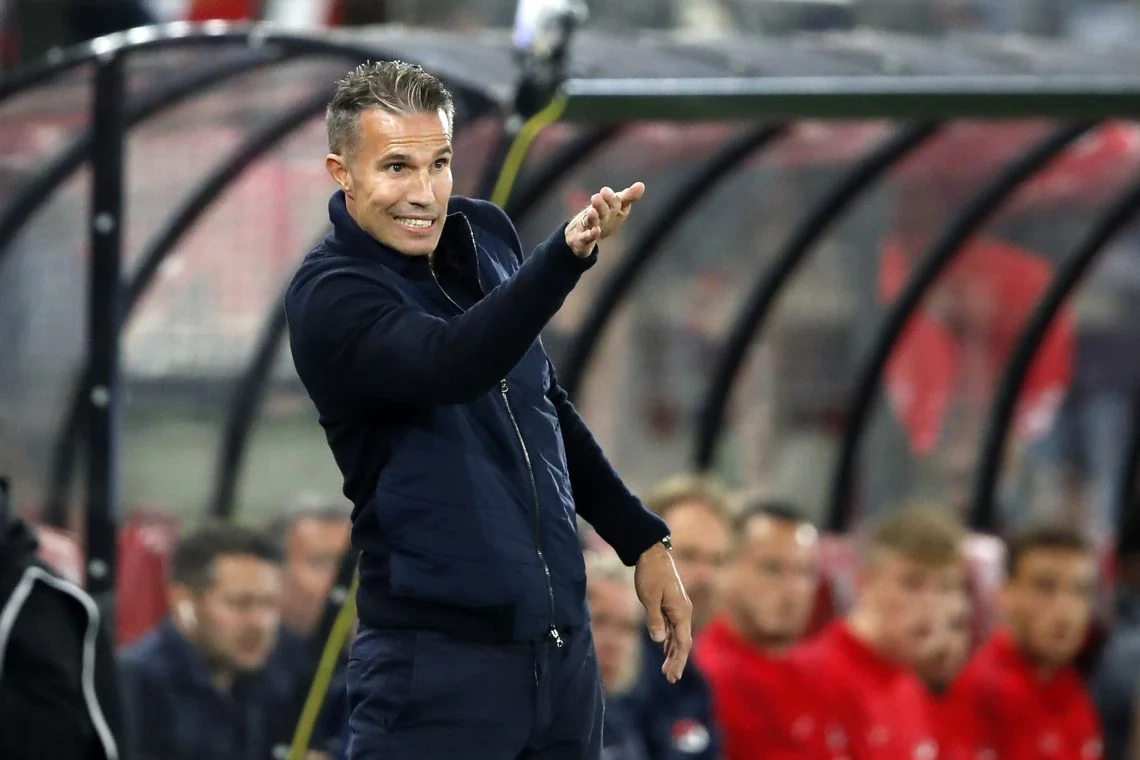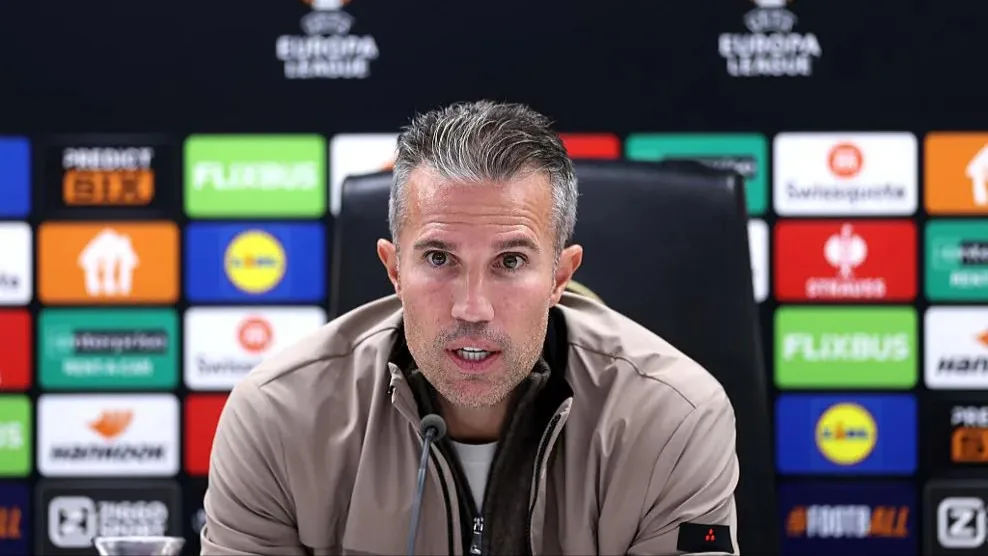Robin van Persie, the manager of Feyenoord and former Netherlands striker, has revealed that the match referee offered him an apology at half-time after disallowing what looked to be a legitimate goal during Feyenoord’s Europa League tie against Aston Villa.
The controversial decision, and the referee’s admission, have stirred debate about officiating standards in European competition.
In the first half of the high-profile clash, Feyenoord appeared to have broken the deadlock when Ayase Ueda’s header crossed the goal line. The Dutch side and their supporters believed the ball had fully entered the net, but the referee, Rade Obrenovic, ruled the goal out, citing a foul in the build-up involving Matty Cash.
Video replays and post-match commentary suggested that the contact was minimal, and many observers felt the goal should have stood.
Following the decision, Van Persie confronted the referee during the half-time interval. Later reflecting on the exchange, he revealed: “That was a clear goal for us. The ref said sorry to me during half-time. I asked him, ‘can you explain what just happened because nothing happened’. Then he said sorry.” He added: “He thought someone was blocked, but he said sorry a couple of times. That’s a shame — it had a big influence on the game.”
It is highly unusual for a referee to apologise directly to a team’s manager mid-match, particularly at such a notable level. Van Persie’s account suggests a recognition from the official that the decision had been erroneous. The apology, in his view, acknowledged the error, though it did not reverse the call.

The match ultimately ended in a 2-0 victory for Aston Villa, who capitalised in the second half. Emiliano Buendía broke the deadlock in the 61st minute with a curling finish from the edge of the box, and John McGinn added a second by reacting quickest to a loose ball inside the area.
For Villa, the win maintained their perfect run in Europe. For Feyenoord, however, the disallowed goal loomed as a pivotal turning point.
Feyenoord had largely dominated play in the opening period, inching closer to a deserved lead. Van Persie’s side tested Villa’s goalkeeper several times, and the feeling in the stadium was growing that a breakthrough was imminent. But instead, they were left to rue a decision that now appears to have been made in error.
Beyond the disallowed goal, the match featured other refereeing controversies. Analysts and commentators in the TNT Sports studio criticised the decision-making at multiple junctures, particularly the fact that a yellow card shown to Anel Ahmedhodzic was not upgraded to a red following a last-man foul inside the box early in the game.
The incident further fuels debates around the use of VAR and the accountability of referees in international club competitions.
While VAR aims to minimize clear errors, the fact that a referee admitted to being wrong halfway through a match raises uncomfortable questions: if such errors can be acknowledged on the spot, why are critical decisions not revisited more transparently?
Van Persie, who began his managerial role with Feyenoord earlier this year and returned to his boyhood club, understands full well the high stakes of European competition. His reputation as a composed leader was tested on this occasion, and his willingness to call attention to the apology underscores the importance he places on fairness and clarity in decision-making.


